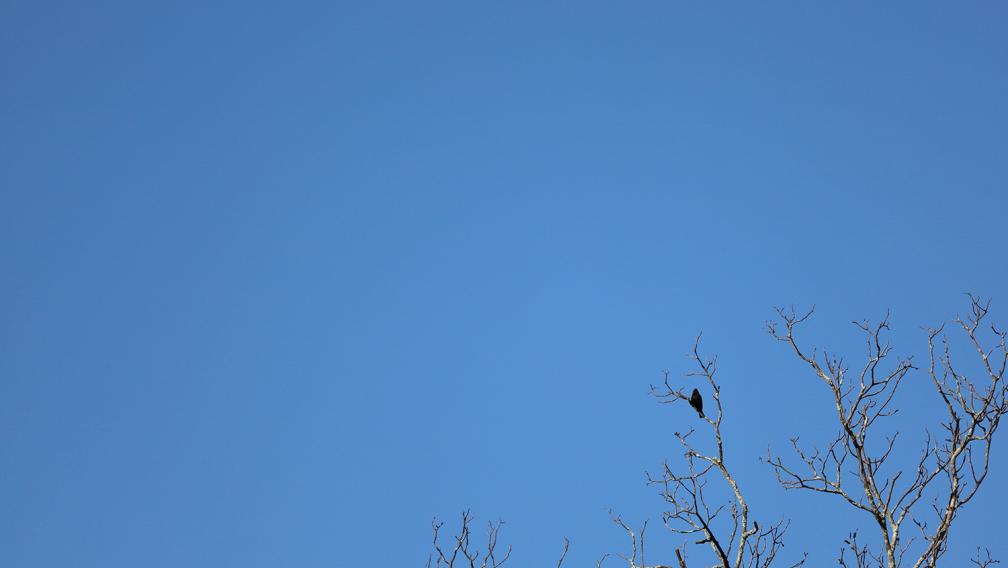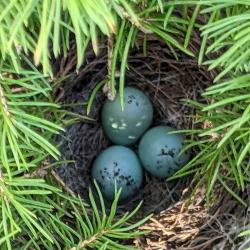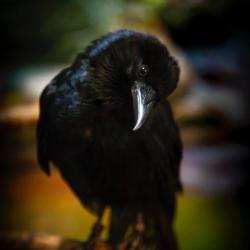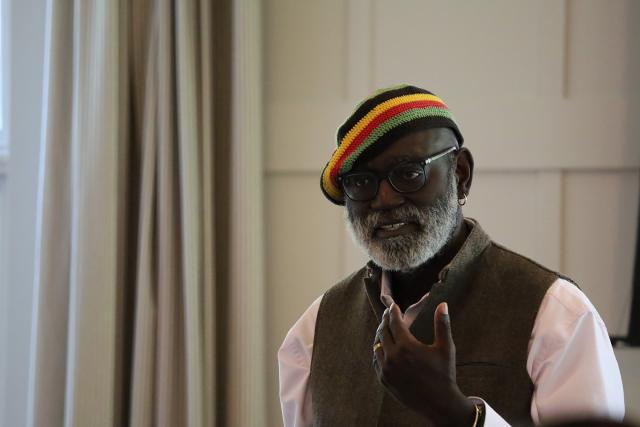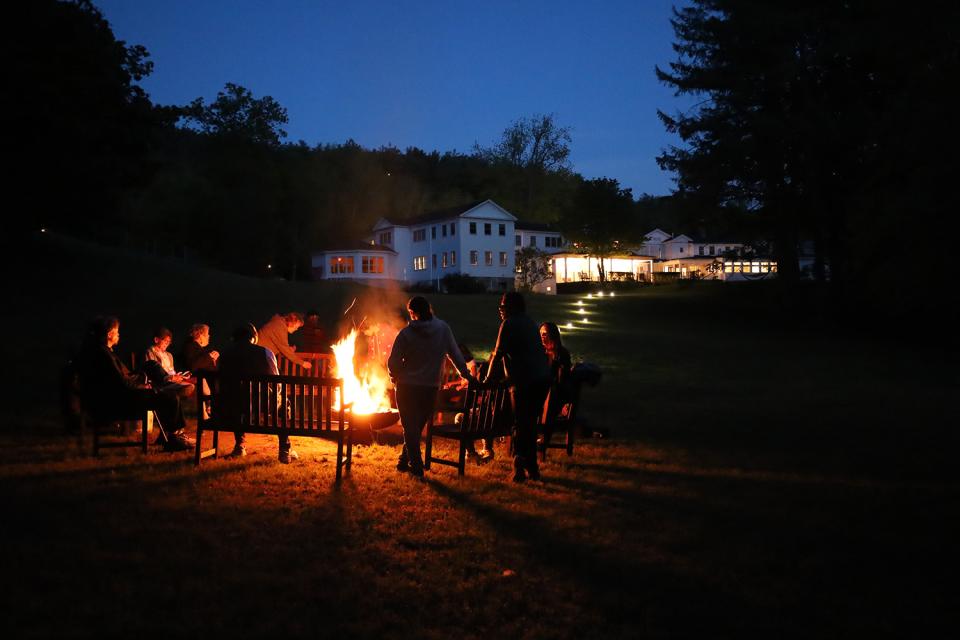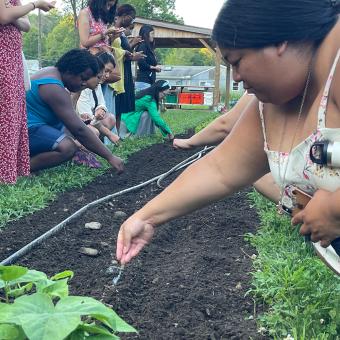In order to see birds, it is necessary to become a part of the silence.
Robert Lynd
The art of sitting still, while noticing small details and focusing on the present, is a key tenet of mindfulness practice. This aspiration to detach from the busyness of life seems apt as spring melts into summer. Life at this time of year seems slower but also fuller. If you pause and look up, you may notice the trees filling up as well, with a multitude of colors and songs, thanks to migratory birds.
Spending time at the Trinity Retreat Center during last weekend’s birdwatching retreat, I joined a group of experienced birders and their friends and loved ones. With our eyes, binoculars, and Merlin apps fixated on the skies above the Trinity Forest in West Cornwall, CT, bird songs and questions swirled: What do birds tell us about the world? How many species will we spot? What can I learn?
Birding is in the middle of a bit of a renaissance. This year’s Great Backyard Bird Count brought out over half a million birders to contribute to the bird census, a 44% increase year over year. During the pandemic, limited by lockdown and narrowed fields of vision, many people gazed out their windows and discovered a new interest in birding. “The funny thing is, the birds were there the whole time. It’s just the first time they were noticed!” joked retreat speaker, Eileen Fielding of the Audubon Society.
Recently published books like Ornitherapy: For Your Mind, Body, and Soul by Holly Merker, Richard Crossley, and Sophie Crossley and TikTok tags like #birdwatching and #birding have popularized birding further. Part of the draw is that birdwatching provides well-being at a time when mental health challenges are on the rise. Nature in general provides tremendous health benefits: reducing stress, supplying vitamin D, and lowering blood pressure. Getting outside is a form of self-care.
Birding is also an activity that can bring better self-awareness. When you are silent and still, things can become clearer. The wonder and curiosity felt during a period of focused observation can generate a more positive outlook and signal a connection to something greater than ourselves.
The small, sometimes microscopic, reality was that I only was able to visibly identify a dozen or so birds during our weekend. In a densely forested area like the surroundings of the retreat center, there are many places for birds to perch and hide. That said, the group and I heard so many more! Red-eyed vireos, Philadelphia vireos, American redstarts, Blackburnian warblers, yellow warblers, Downey woodpeckers, bluebirds, yellow-bellied sapsuckers, a brown creeper, and crows, the loudest of the bunch.
I’m going to go on a small tangent about crows here.
You may have heard that crows reward people who show them kindness. I witnessed this firsthand with the Rev. Dr. Mark Bozzuti-Jones, priest and director of spiritual formation at the Trinity Retreat Center, who has made a habit of befriending local crows by sharing breakfast with them each morning. Sure enough, as our group gathered for our 7am bird walk, there were the crows, a whole murder of them, all waiting and watching for their friend Mark, and excitedly cawing when he emerged.
Another fascinating moment of the weekend was the discovery of a multilingual crow, who lives at the Sharon Audubon Center. “Hello!” said this Fish Crow, named Mischief, every time a person neared his habitat. In addition to this greeting, Mischief can caw, but he also imitates humans imitating crows with an odd-sounding “caw, caw, caw,” and at some point in his upbringing near a duck, he also learned to quack. What an intelligent, amazing animal.
“It’s impossible to love birds and not also love humanity,” advised Father Mark during one of the group workshops on the intersection of spirituality and birdwatching. “You begin to discover how connected we all are.”
It’s true. The two dozen of us arrived as strangers but departed as friends. People from all walks of life, different abilities, geographies near and far, can find a common passion in watching birds and become closer to one another as a result. When so much of life can feel demanding and screen-based these days, it helps to step out of the blue light and into the sun, particularly if you can make new friends, human and feathered, in the process.
